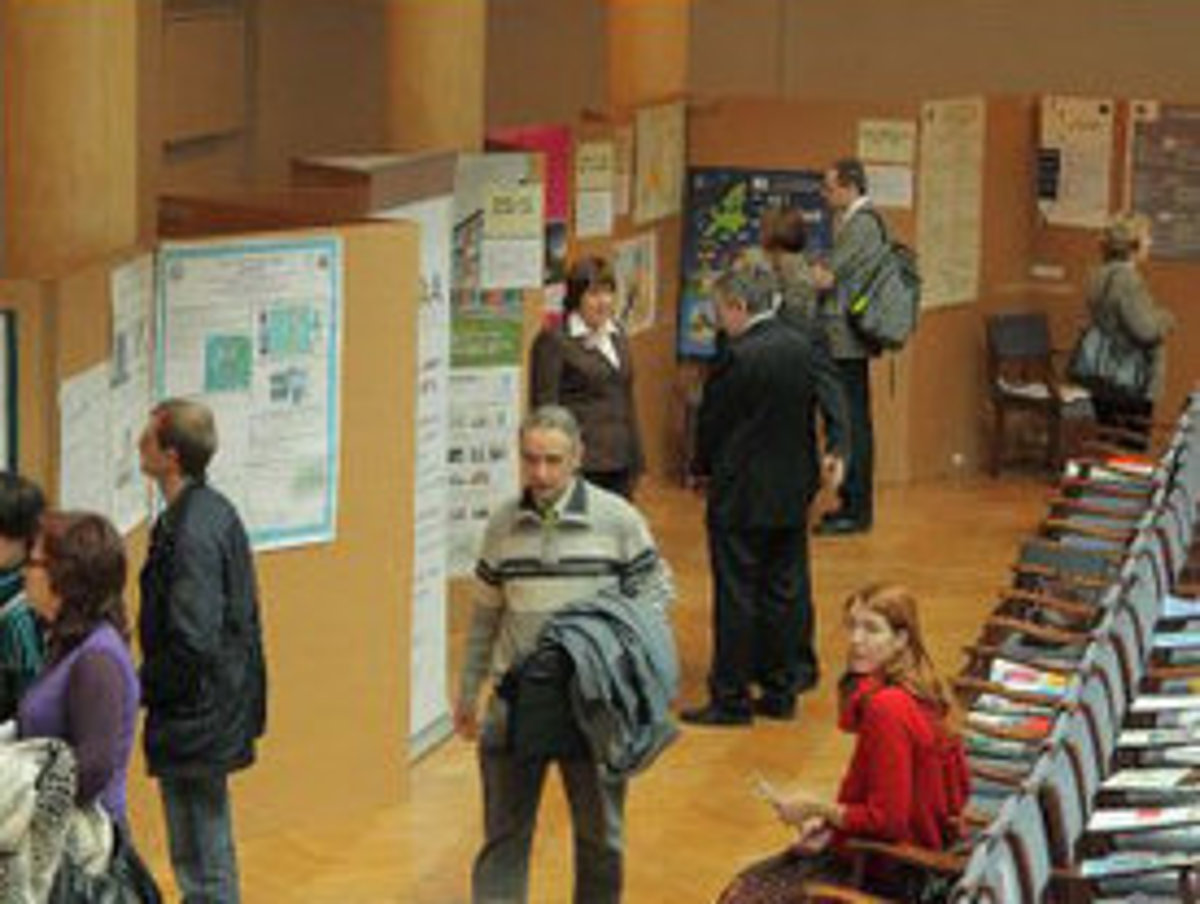
The Open Doors Day devoted to programme research and science development is being held for the second year, giving scientists the opportunity to present their work results to a wider audience and find out more about science projects carried out in other enterprises and institutes.
The University of Latvia stands for progression towards new knowledge and its practical application, thus Indrikis Muiznieks, UL Professor and Science Pro-rector of the Faculty of Biology, expressed his delight for the possibility to organize the Open Doors Day within the premises of the UL.
The University of Latvia and its scientific institutes have a successful experience in uptaking the EU financing. The UL has participated in implementation of several 7th Framework Programme’s projects.
The Institute of Solid State Physics, Institute of Mathematics and Computer Science and Institute of Physics stand among five best evaluated project submitters and developers of Latvia.
Scientists always have been able to continue their work and have identified the fields that require improvement, even when facing economic downfall and financial difficulties.
I. Muiznieks was gratified that the social gathering was represented not only by projects at the national level, but also by international projects, which were participated by our institutes and representatives of other organizations.
The Open Doors Day was organized in cooperation with the National Contact Point of the 7th Framework Programme.
The EU represenative for Directorate-General of Science, Dr. Alan Cross, delivered a speech in the Great Hall, where he briefly highlighted the aims and statistics of the 7th Framework Programme.
The Programme was created with an aim to develop common science market. The main directions deal with research improvement in the EU and promote contribution in science. In 2009, 55 000 applications were received from organizations around all Europe, and 9000 projects were accepted.
Latvia in uptaking the financing is slightly over the average index; however, small and medium-sized enterprises of Latvia fall behind science organizations. The current Framework Programme is a continuation of former (5th and 6th) programmes.
The 7th Framework Programme for research and science development has been created to gain financing during the period of 2007 - 2013, therefore already in the first half of next year there will be discussions with the former project developers about improvements, which scientistists expect to see in the next 8th Framework Programme. The next Programme is planned for 2014.
The leader of the National Contact Point, Arnolds Ubelis, awarded the UL Science Pro-rector Indrikis Muiznieks for organizing the Open Doors Day within the UL premises and promoting science, Science Pro-rector Leonid Ribickis of Riga Technical University (RTU) for reaching good project results, due to the fact that RTU institutes have proved their competitiveness at the EU level. Signe Knipse, the journalist of „Dienas Bizness”, received special praise for showing great interest in science both from professional and personal perspectives. Andris Ambainis was awarded as the youngest academician, as he has received special appreciation within an international competition in the field of computer sciences. The representative wished the young scientist to obtain European Science Foundation Grant or Descartes Prize for realizing challenging ideas.
The visitors of the Open Doors Day were able to see information stands of financed projects, as well as to ask questions to the participants of the projects and representatives of the institutions.
Among the most interesting UL projects were „Quantum Computer Science” on creating a quantum algorithm. Currently, computers have a simple algorithm 0 and 1, while scientists for several years have worked at creating a more complicated quantum algorithm, which could carry out the functions more effectively, manage more complicated tasks and maintain a high data security level.
Significant discoveries have been done also in the Institute of Atomic Physics and Spectroscopy, while examining circulatory system and dermatological analysis with a laser. In the UL Laser Centre lasers are used at atom and molecule levels.
Special attention was placed also on the new project of the Institute about the spread of quicksilver around the world. The project involves 26 partners from many countries around the world. The previous data will be analysed, in order to acquire knowledge of quicksilver „travelling”.
Institute of Solid State Physics very successfully participates in the EURAROM Programme, developing a new method of plasma purity control. The UL Institute of Physics takes part in large-scale projects related to the creation of nucleosynthesis reactor.
Translated by students of the professional study programme Translator of the University of Latvia.
Translated by students of the professional study programme Translator of the University of Latvia.

 CONFERENCE
CONFERENCE